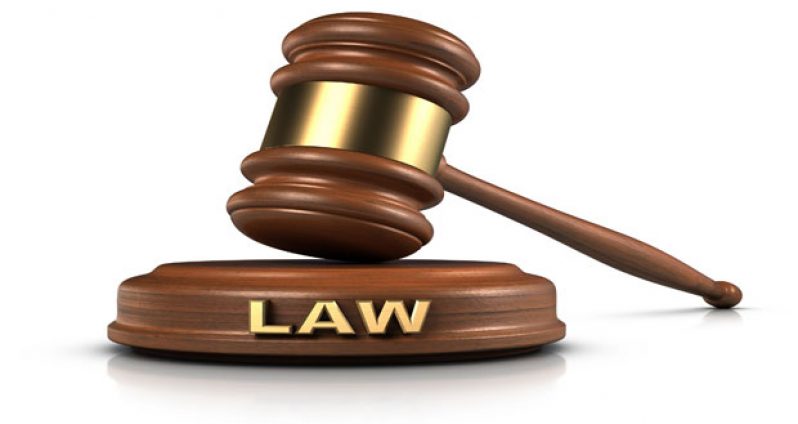IN 2002, Guyana’s Appellate Court allowed an appeal and ordered a new trial because the judge who delivered the decision did so without being clothed with constitutional authority.

Justices of Appeal C. Singh, Nandram Kissoon & I. Chang heard the appeal.
According to the facts, Justice Vidyanand Persaud, on his last date in office, concluded the hearing of the case in question.
The parties, through their respective counsels, had consented to the decision being given by him after the expiration of his term.
The decision was submitted six years after Persaud returned to private practice as an attorney-at-law.
Persaud had reservations as to the correctness of the delivery of the decision since he had demitted office. Despite the fact that he had communicated his reservation to both the Chief Justice and the Chancellor, he was advised that he should proceed to give his decision.
The trial judge dismissed the action from which the Plaintiffs before him had appealed.
The issue on appeal is whether such consent was constitutionally valid since no specific provision in the constitution Act empowers a judge to deliver a judgment in the High Court after his retirement.
The Appellate Court held that under Article 197 (v) of the 1980 Constitution, only the President, acting on the advice of the Judicial Service Commission, can grant the necessary permission for the extension of the tenure of office of a judge to enable him to deliver his judgments.
Although the parties had consented to Justice Persaud giving his decision after his term had come to an end, such consent could not in law clothe him with the necessary constitutional authority since he was not a court prescribed by law in terms of Article 144 (8) of the Constitution.
R. Forde with L. Amsterdam appeared for the Appellants and J. A. King, S.C., with R. Khan, appeared for the respondent.
The Court pronounced against the pretended will of the deceased bearing the date 20th May, 1992.
It declared that the deceased died intestate and revoked Probate 889 of 1992 granted to the defendant.
The Court also granted an injunction restraining the Defendant from acting as Executor of the will of the deceased and from dispossessing the first named Defendant.
The trial judge dismissed the action from which the plaintiffs appealed. At the hearing of the appeal, counsel for the Appellants, Mr. Roysdale Forde, proceeded to argue that the decision of the learned trial judge was a nullity without legal force and effect and unconstitutional, for the reason that at the date of the said decision the learned trial judge was not competent or capable in law to deliver the, aforesaid decision.
He also argued that the decision of the learned trial judge was a nullity without legal force and effect and unconstitutional for the reason that there was no consent law by the Appellant/Plaintiff to receive the judgment of Justice Persaud.
Further, Forde submitted that the decision of the learned trial judge was a nullity without legal force and effect and unconstitutional for the reason that the acts purportedly consented to were incapable of being achieved in law.
Justice Vidyanand Persaud on his last date in office concluded the hearing of the case in question and the parties through their respective counsel had consented to the decision being given by him after the expiration of his term.
In the decision which was submitted on 18th January , 2000 some six years later, Mr. Persaud, who had returned to private practice as an Attorney-at-law, opined that he had reservations as to the correctness of the delivery of the decision since he had demitted office.
Moreover, despite the fact that he had communicated his reservation to both the Chief Justice and the Chancellor, he was advised that notwithstanding the delay he should proceed to give his decision.
According to the president of the Appellate Court, “Under the Constitution, the President acting on the advice of the Judicial Service Commission can grant the necessary permission for the extension of the tenure of office of a judge to enable him to deliver his judgments.
“Although the parties had consented to Persaud, his decision after his term had come to an end could not in law clothe him with the necessary constitutional authority since he was not a court prescribed by law in terms of article 144 (8) of the Constitution.”
The term “court” is defined in section (2) of the High Court Act, Cap.3:02 as including a judge when exercising any of the jurisdictions conferred on him by statute.
Justice of Appeal Singh added: Parliament has vested the authority to extend the tenure of judges solely in the President and no act of the parties can be substituted for such authority.












